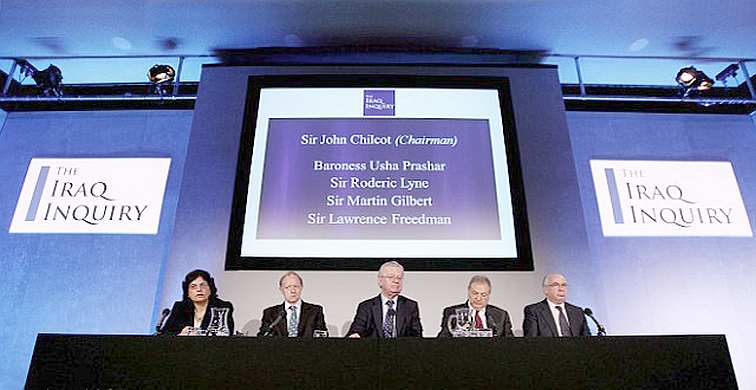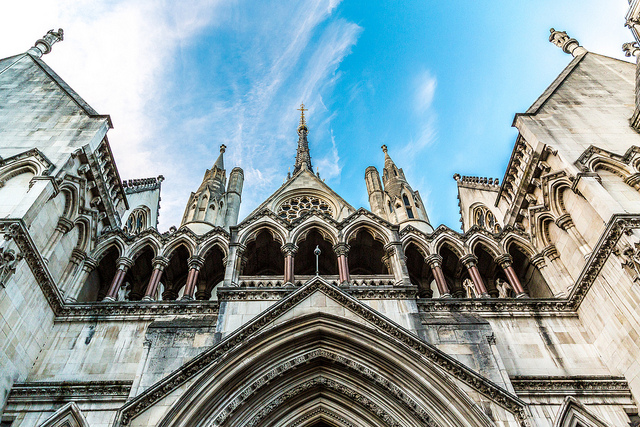Former British PM Tony Blair can’t be taken to court in a private prosecution, the High Court has ruled.
General Abdul Wahed Shannan al-Rabbat, a former Chief of Staff of the Iraqi Army, had hoped to take the former politician to court over the Iraq War. He’d also hoped to prosecute then foreign secretary, Jack Straw, and attorney general, Lord Goldsmith over war crimes.
What’s the background to all of this?
 Image Credit: Morning Calm Daily Newspaper / Flickr
Image Credit: Morning Calm Daily Newspaper / Flickr
In 2003 the UK invaded Iraq as part of a coalition of forces including the USA, in a bid to topple the dictator Saddam Hussain. He’d been in power for more than two decades, with his regime carrying out various human rights violations, including the use of rape, executions and severe restrictions on politician and religious freedoms. At the time politicians claimed he was in possession of “weapons of mass destruction”, though this later turned out to be untrue.
The ‘war-fighting’ only lasted a few months, but including the bloody peacekeeping stage, the conflict lasted for more than eight years. All in all, 171 British servicemen and women died and many more were injured. It wasn’t until 2009 that the last UK troops left the country, with the final American forces leaving in 2011.
Ever since the war there have been accusations that the intervention itself was illegal, with vocal calls from Mr Blair to face prosecution for war crimes. However, this seems unlikely to happen, especially after the Chilcot report.
Hang on, what’s the Chilcot report again?
 Image Credit: The Iraq Inquiry
Image Credit: The Iraq Inquiry
Remember that one? The 2.6 million word report into the UK’s role in the invasion of Iraq was published in July 2016, but while it did find failings from the Blair Government, it wasn’t a civil or criminal trial, so wouldn’t have been able to bring any charges anyway.
It’s main findings found that the UK had joined the invasion before all peaceful options had been exhausted, in other words, military action was not a last resort. It also said intelligence assessments (namely those about weapons) were flawed, and hadn’t been challenged when they should have been.
Additionally the report said there was not much time to prepare troops for deployment meaning the risks weren’t properly identified, leading to equipment shortfalls.
So, where does the law stand on this?
 Image Credit: Dave Pearce / Flickr
Image Credit: Dave Pearce / Flickr
While the legality of the law has been long debated, there’s never been any real prospect of Tony Blair facing prosecution. Though war crimes would obviously be a human rights breach, it’s not quite so clear cut and the laws surrounding it are complex.
Generally, the use of force by one state against another is forbidden by international law, namely the United Nations Charter. The only exception is where it is sanctioned by the UN Security Council – something which there’s much debate about with regards to Iraq war, or if it’s an act of self-defence. The justifications for the war are lengthly and complicated – but largely hinge on the weapons of mass destruction.
International Humanitarian Law (IHL) comes into play once a war has begun and dictates how war must be conducted. It protects those not involved in the conflict and prescribes acceptable methods of armed conflict. For example, using poisoned weapons is illegal. International Criminal Law outlaws crimes on a mass scale, including genocide, crimes against humanity (attacks on civilians during war or peace) and war crimes (serious violations of the laws that apply in wartime). These crimes are contained in the Rome Statute of the International Criminal Court which is located in the Hague.
Right. What’s just happened?
General Abdul Wahed Shannan al-Rabbat tried to bring a case against Mr Blair for “crimes of aggression”.
He’d previously been turned down by Westminster Magistrates’ Court when he attempted to bring a private prosecution.
He then tried to bring a judicial review to try and get to the UK’s highest court – the Supreme Court – to overturn a previous ruling in 2006 that there is no such crime written into the law of England and Wales.
Once again his argument has been dismissed, with the High Court judges saying there was “no prospect” of the case succeeding.
Previously the UK attorney general had urged the High Court to block the challenge as it was “hopeless”, as the crime didn’t currently exist in the UK.
In reaction to the ruling, a spokesman for the office said while the case raised “important issues about the scope of the criminal law […] It should be for Parliament, and not the courts, to create new criminal offences.”
Want to know more? Here’s a couple of links to get you going…
- See this piece from when the Chilcot report on the Iraq War came out
- Read this article on the human rights of soldiers
- Take a look at Donald Trump’s comments on trans people in the forces







